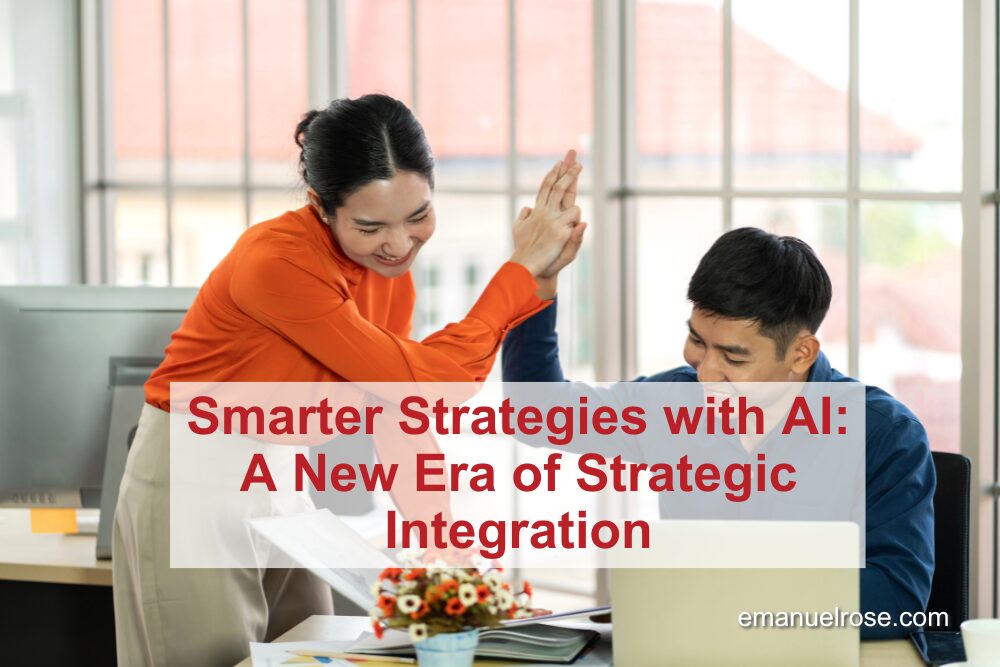The power of artificial intelligence (AI) is revolutionizing marketing, allowing businesses to harness unprecedented technological advancements to drive strategic growth. As businesses transition from traditional methods to AI-driven strategies, understanding the nuances of AI applications in marketing becomes crucial. This guide explores the dynamic nature of AI in business, uncovering the impact of AI tools, the challenges faced, and the opportunities available for effective integration.
Rapid shifts and unexpected developments mark AI’s evolution in the marketplace. Companies can no longer anticipate trends with certainty, as advancements can emerge overnight. This dynamic environment requires businesses to be agile, embracing AI’s disruptive potential while navigating its unpredictable nature. AI’s development is a balancing act between innovation and the readiness of technologies to reach maturation.
The Role of Context in AI
In the domain of AI, context is everything. Crafting solutions that mimic human understanding requires a deep comprehension of context—a challenge that continues to evolve. While some hold optimistic views about AI reaching human-like cognition soon, the truth remains that AI tools, although powerful, require significant adaptation to transition from mere technological marvels to real-world business solutions.
AI in Marketing: The Bridge to Transformation
Today, marketing strategies are enhanced by AI tools, ranging from automation services to intelligent agents. Simple automation, such as that achieved through platforms like Zapier, gradually gives way to more complex, agent-driven approaches. These agents bridge the gap between data processing and actionable insights, turning raw data into tailored solutions that resonate with a business’s audience.
Capabilities and Limitations of AI
AI agents excel at processing vast datasets, outperforming human capabilities. However, their limitations become apparent in areas requiring emotional intelligence and nuanced understanding. While AI can augment human efforts, emotional intricacies and cognitive reasoning remain areas where human input is indispensable. The growth of AI brings symbiotic opportunities, enhancing human functions while challenging businesses to integrate AI thoughtfully.

Strategic AI Integration
Deploying AI within an organization necessitates a structured approach. Businesses must align AI applications with strategic objectives, leveraging the technology’s unique capabilities to drive profit and efficiency. Whether in customer support or as financial advisors, AI agents demonstrate their utility across various sectors by acting as conduits for executing business solutions.
Preparing for AI in Programming
The programming industry experiences significant shifts as AI automates routine tasks, emphasizing complex problem-solving roles. Aspiring tech professionals should focus on understanding AI applications while gaining expertise in another industry sector, creating a niche that bridges AI with specific business needs. This approach positions them as invaluable assets in an AI-driven economy.
Encouraging Adoption Across Business Levels
Despite AI’s capabilities, adoption in senior executive circles lags. This hesitancy often stems from viewing AI as just another tech tool rather than a transformative force. By recognizing AI’s potential to double profitability, executives can accelerate adoption by integrating AI with strategic business goals, involving critical stakeholders like CFOs to ensure high-ROI initiatives.
Leveraging AI Tools
Effective AI integration requires familiarity with various tools tailored to empower businesses.

Platforms like ChatGPT aid in learning and applying AI concepts, while visual tools like Midjourney and Canva enhance storytelling. For businesses, open-source AI models and platforms ensure projects proceed with minimal technical expertise, democratizing access to AI’s benefits.
AI’s potential to redefine marketing is undeniable. By embracing AI strategically and fostering a culture of continuous innovation, businesses can unlock new levels of profitability and growth. This transition depends not only on technological adoption but also on a paradigm shift in how leaders perceive and implement AI as a core component of their organizational strategy.
As we navigate this new era, maintaining a forward-thinking mindset and engaging AI iteratively ensures that businesses remain competitive and future-ready. With proper alignment and robust strategic planning, AI’s integration promises to transform aspirations into tangible results, making it an indispensable ally in modern marketing.
We appreciate Dilip Dubey’s insights. Adapting to change with intelligent solutions is essential for businesses and marketers to stay ahead.
Get to know Dilip Dubey: linkedin.com/in/dilip-dubey-ai
Get to Dilip’s company: sutra.ai
Watch the Marketing in the Age of AI podcast featuring Dilip Dubey: youtu.be/jxJgCqMz2V4


